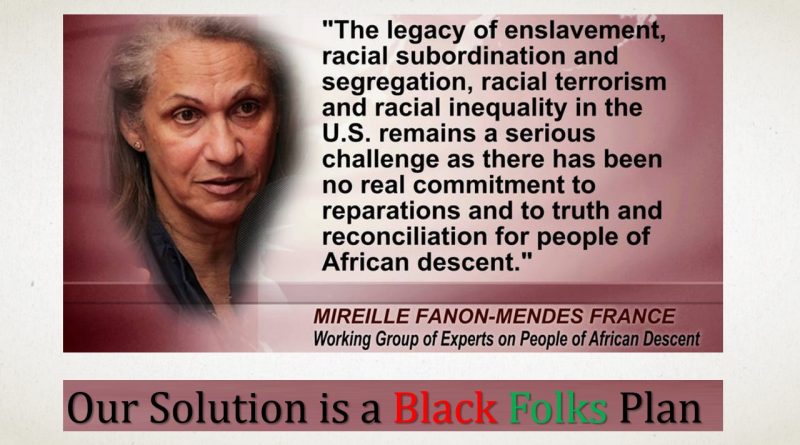The Black Folks Plan for the World
The WGEPAD public 27th session, entitled “The Urgency of Now: Systemic Racism and the Lessons of 2020” will be held from 30 November to 3 December, 14.00-16.00 (CET).
This thematic session will build on the WGEPAD’s report COVID-19, systemic racism and global protests and set the scene for the mid-term review of the International Decade for people of African descent and 20th anniversary of the DDPA. It will include discussions on the key themes and priorities for the protection of the human rights of people of African descent, positive developments, good practices and how to address systemic racism based on international human rights law.
At the end of the session, the Working Group will adopt conclusions and recommendations. A report on the session will be presented to the United Nations Human Rights Council.
The Working Group encourages States to invest financially through the setting
up a fund for people of African descent and also investing in areas of education and awareness-raising on DDPA, the POA, and on the legacy of people of African descent.
We followed their recommendations before they issued them with our public-private partnership with the US State Department on November 9th, 2020 and here is our proposal submitted December 4th, 2020 to the working group:p
afdidi-africandiasporadirectorateHistorical Background
The World Conference against Racism, Racial Discrimination, Xenophobia and Related Intolerance, held in Durban in 2001, adopted the Durban Declaration and Programme of Action. Paragraph 7 of the Durban Programme of Action specifically “requests the Commission on Human Rights to consider establishing a working group or other mechanism of the United Nations to study the problems of racial discrimination faced by people of African descent living in the African Diaspora and make proposals for the elimination of racial discrimination against people of African descent”.
Mandate
The Working Group of Experts on People of African Descent was established in 2002 by the Commission on Human Rights resolution 2002/68 (as a Special Procedure). The mandate was subsequently renewed by the Commission on Human Rights and the Human Rights Council in its resolutions (CHR 2003/30, 2008/HRC/RES/9/14, 2011/HRC/RES/18/28, 2014/HRC/RES/27/25, A/HRC/RES/36/23 and A/HRC/RES/45/24).
In 2008, Human Rights Council resolution 9/14 entrusted the Working Group:
(a) To study the problems of racial discrimination faced by people of African descent living in the diaspora and, to that end, gather all relevant information from Governments, non-governmental organizations and other relevant sources, including through the holding of public meetings with them;
(b) To propose measures to ensure full and effective access to the justice system by people of African descent;
(c) To submit recommendations on the design, implementation and enforcement of effective measures to eliminate racial profiling of people of African descent;
(d) To make proposals on the elimination of racial discrimination against Africans and people of African descent in all parts of the world;
(e) To address all the issues concerning the well-being of Africans and people of African descent contained in the Durban Declaration and Programme of Action;
(f) To elaborate short-, medium- and long-term proposals for the elimination of racial discrimination against people of African descent, bearing in mind the need for close collaboration with international and development institutions and the specialized agencies of the United Nations system to promote the human rights of people of African descent through, inter alia, the following activities:
(i) Improving the human rights situation of people of African descent by devoting special attention to their needs through, inter alia, the preparation of specific programmes of action;
(ii) Designing special projects, in collaboration with people of African descent, to support their initiatives at the community level and to facilitate the exchange of information and technical know-how between these populations and experts in these areas;
(iii) Liaising with financial and developmental institutional and operational programmes and specialized agencies of the United Nations, with a view to contribute to the development programmes intended for people of African descent by allocating additional investments to health systems, education, housing, electricity, drinking water and environmental control measures and promoting equal opportunities in employment, as well as other affirmative or positive measures and strategies within the human rights framework.
In 2017, with resolution 36/23, the Human Rights Council further extended the mandate of the Working Group for three years.
